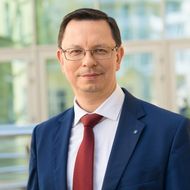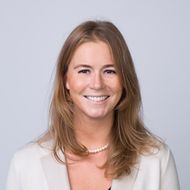HSE and Yandex to Expand Collaboration in Training AI Specialists

Over the next ten years, the partnership between Yandex and the HSE Faculty of Computer Science (FCS) will broaden across three key areas: launching new educational programmes, advancing AI research, and exploring the application of generative neural networks in the educational process. Established by HSE University and Yandex a decade ago, the Faculty of Computer Science has since emerged as a frontrunner in training developers and experts in AI and machine learning, with a total of 3,385 graduates from the faculty over this period.
The primary areas of collaboration between HSE University and Yandex encompass education and research in computer science, machine learning, and artificial intelligence. This year, with support from Yandex, HSE University will introduce a master's programme in AI in marketing and product, while also incorporating AI as a field of study into the Modern Computer Science master's programme to train specialists in generative technologies and large language models. Additionally, interdisciplinary programmes in IT fields will be developed for social science students.

Nikita Anisimov, Rector, HSE University
For a decade, the HSE Faculty of Computer Science has been a source of cutting-edge advancements in IT, training highly skilled specialists. The best of the best enrol in the FCS as students and graduate from it. In 2023, 93 finalists and prize winners of the All-Russian Olympiad of School Students enrolled in the first year of the FCS's Bachelor's, with 73 of them joining the programme in Applied Mathematics and Information Science. Software Engineering has the highest minimum score requirement among all educational programmes at HSE University, standing at 305 points. One of the key objectives for HSE University is to strengthen training in the field of AI. Our students excel in international programming competitions and emerge as sought-after specialists in an industry that requires an in-depth understanding of future technologies. Through collaboration with major players in the artificial intelligence industry such as Yandex, HSE University will foster a new generation of AI experts capable of tackling the most challenging tasks.
The LAMBDA Laboratory of Methods for Big Data Analysis and Yandex Laboratory were created with support from Yandex. The Yandex scholarship is available for young researchers at the FCS, with the company annually supporting up to 16 students engaged in scientific work. A joint doctoral programme in artificial intelligence will open in September. In addition to this, Yandex is one of the industry partners of the HSE AI Research Centre.

Daria Kozlova, Director of Education at Yandex
Yandex and the HSE FCS were among the first in the country to initiate systematic efforts to advance IT education. Graduates of the faculty are highly sought after, both in the business world and in academia. Over the next few years, Yandex and the FCS plan to substantially broaden their collaboration in IT training. According to our projections, over the next decade, the number of graduates from Yandex programmes at the faculty is expected to quadruple compared to the last decade.
The HSE Faculty of Computer Science, in collaboration with Yandex, has been integrating AI-based tools into the educational process and research. This year, new training courses in working with neural networks will be launched for both students and faculty.
Graduates of the FCS are employed in leading Russian IT companies, engage in R&D, and establish their own start-ups and businesses. Specifically, at Yandex, these graduates work in business groups that develop services such as Search, Market, Taxi, and others. HSE University is a prominent AI research hub, ranking second among Russian universities in terms of the number of publications at A* conferences: between 2015 and 2023, a total of 168 papers were published with FCS affiliation. In the AI Alliance Russia's university ranking, HSE University holds the top position in the A+ leadership group based on criteria including graduates' employability, quality of the educational environment, and initiatives for schools.
See also:
Artificial Intelligence Transforms Employment in Russian Companies
Russian enterprises rank among the world’s top ten leaders in AI adoption. In 2023, nearly one-third of domestic companies reported using artificial intelligence. According to a new study by Larisa Smirnykh, Professor at the HSE Faculty of Economic Sciences, the impact of digitalisation on employment is uneven: while the introduction of AI in small and large enterprises led to a reduction in the number of employees, in medium-sized companies, on the contrary, it contributed to job growth. The article has been published in Voprosy Ekonomiki.
HSE Seeks New Ideas for AI Agents: Initiative Competition Launched
HSE University is inviting researchers and lecturers to present concepts for new digital products based on artificial intelligence. The best projects will receive expert and technological support. Applications are open until December 19, 2025.
Final of International Yandex–HSE Olympiad in AI and Data Analysis Held at HSE University
Yandex Education and the HSE Faculty of Computer Science have announced the results of the international AIDAO (Artificial Intelligence and Data Analysis Olympiad) competition. Students from 14 countries took part. For the second year in a row, first place went to the team AI Capybara, which developed the most accurate AI model for an autonomous vehicle vision system.
AI Lingua Included in Compilation of Best International AI Practices in Higher Education
HSE University has been acknowledged internationally for its pioneering efforts in integrating artificial intelligence into higher education. The AI Lingua Neural Network developed at HSE was included in the renowned international collection ‘The Global Development of AI-Empowered Higher Education: Beyond the Horizon.’ The compilation was prepared by the Institute of Education (IOE) of Tsinghua University with the support of the Ministry of Education of the People's Republic of China and a global advisory committee, which included experts from Oxford, UCL, Sorbonne, Stanford, and other leading academic centres.
Technological Breakthrough: Research by AI and Digital Science Institute Recognised at AI Journey 2025
Researchers from the AI and Digital Science Institute (part of the HSE Faculty of Computer Science) presented cutting-edge AI studies, noted for their scientific novelty and practical relevance, at the AI Journey 2025 International Conference. A research project by Maxim Rakhuba, Head of the Laboratory for Matrix and Tensor Methods in Machine Learning, received the AI Leaders 2025 award. Aibek Alanov, Head of the Centre of Deep Learning and Bayesian Methods, was among the finalists.
HSE University to Join Physical AI Garage Project by Yandex
Yandex is collaborating with leading Russian universities to launch a new educational programme called Physical AI Garage. This initiative unites five universities—HSE University, ITMO, MIPT, MAI, and MEPhI—to train future professionals in physical artificial intelligence by tackling real-world industrial challenges. The programme is free, and participants will receive scholarships.
Larger Groups of Students Use AI More Effectively in Learning
Researchers at the Institute of Education and the Faculty of Economic Sciences at HSE University have studied what factors determine the success of student group projects when they are completed with the help of artificial intelligence (AI). Their findings suggest that, in addition to the knowledge level of the team members, the size of the group also plays a significant role—the larger it is, the more efficient the process becomes. The study was published in Innovations in Education and Teaching International.
HSE Researchers Assess Creative Industry Losses from Use of GenAI
Speaking at the IPQuorum.Music forum on October 15, Leonid Gokhberg, HSE First Vice Rector, and Daniil Kudrin, an expert at the Centre for Industry and Corporate Projects of HSE ISSEK, presented the findings of the first study in Russia on the economic impact of GenAI on creative professions. The analysis shows that creators’ potential losses could reach one trillion roubles by 2030.
‘Fall into ML Has Firmly Established Itself as a Landmark Event in Russia’s AI Scene’
On October 24–25, 2025, the AI and Digital Science Institute of the HSE Faculty of Computer Science will host the fourth annual Fall into ML 2025 conference at the HSE Cultural Centre. The event is once again supported by its general partner, Sber. The focus this year is on breakthrough research and the future of fundamental AI.
Start of a Long Journey: Young HSE Scientists Contribute to Learning Theory at COLT 2025
Participation in high-level international events is crucial for the professional development of researchers starting their career in science. It provides an opportunity to exchange ideas, create promising teams, and make important connections. This summer, Denis Ryapolov and Askar Tsyganov, students of the Applied Mathematics and Computer Science programme and staff of the AI and Digital Sciences Institute at the Faculty of Computer Science of HSE University, attended the prestigious international Conference on Learning Theory, COLT 2025, which was held in Lyon, France. In an interview, they shared their experiences and impressions from the trip.


